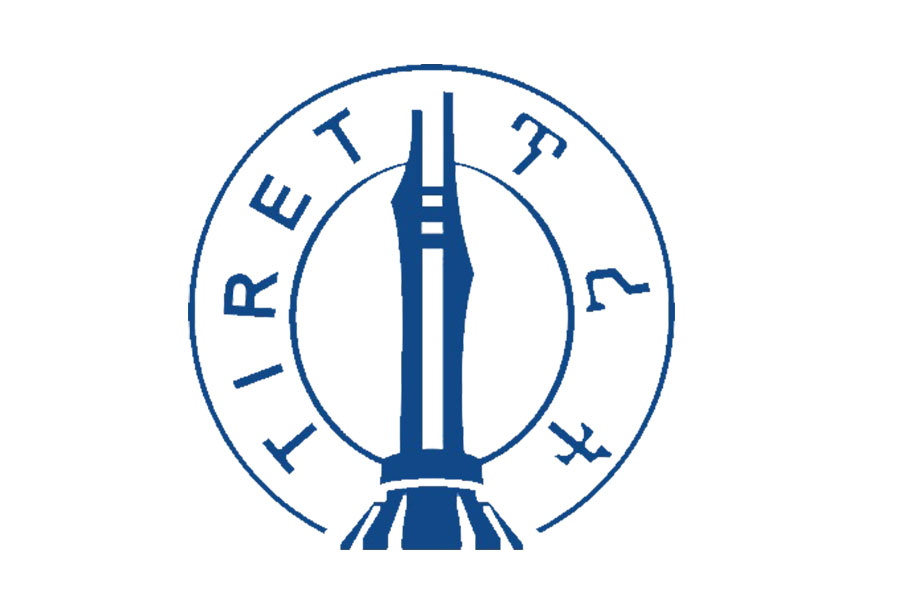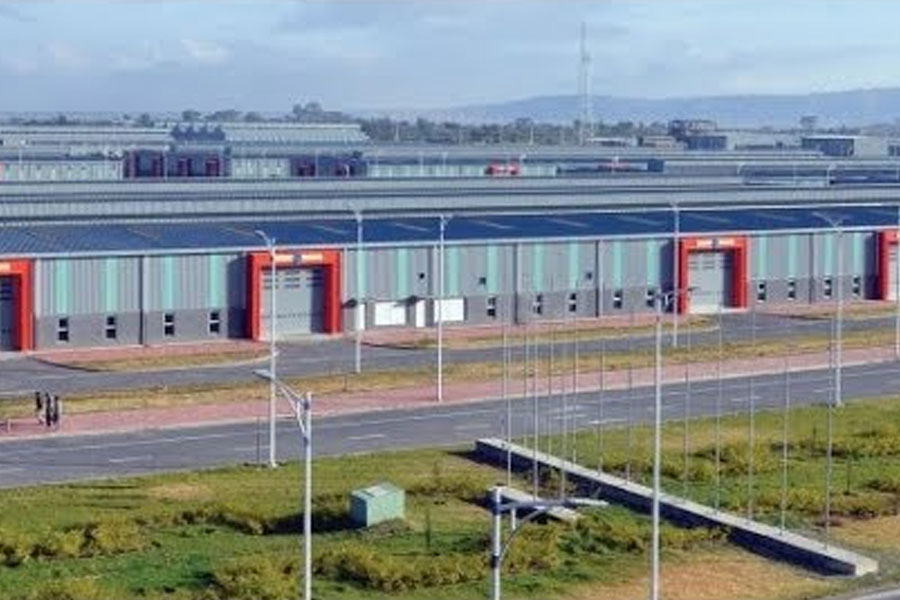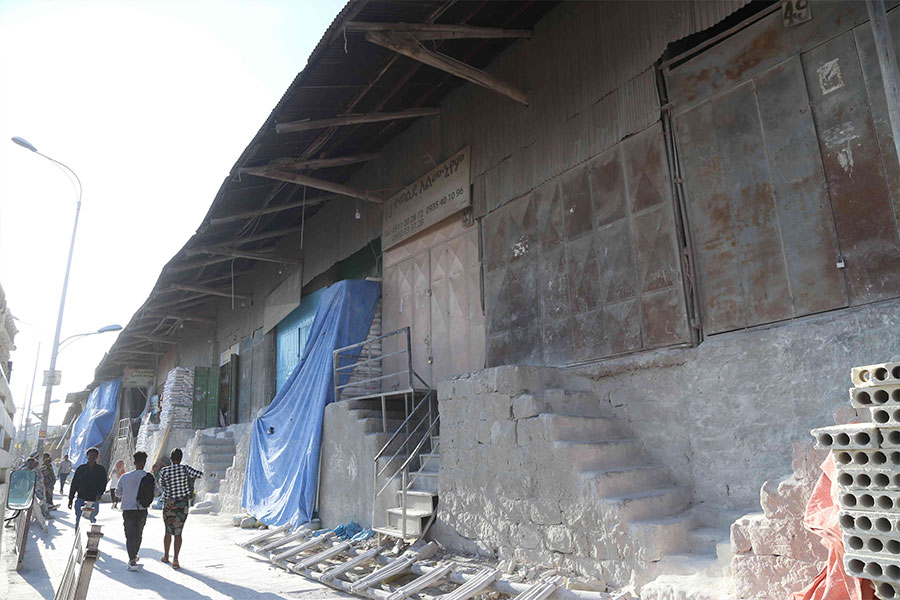
Radar | Aug 30,2025
Executives of National Cement are moving forward with a plan to use an invasive species of weed to partially replace coal at its plant in Dire Dawa, 515Km east of Addis Abeba,
Native to the Americas and the Caribbean, Prosopis juliflora was introduced to Ethiopia in the 1980s, following a severe drought in the previous decade. The invasive plant has proliferated since, covering an estimated two million hectares (10pc), mostly in arid and semi-arid areas of the country. Growing to 12m high, the plant covers nearly 22pc of the Afar Regional State's landmass.
East Africa Mining Corporation, a sister company of National Cement under East Africa Holdings, has been experimenting with the idea of converting Prosopis juliflora into biomass since 2015. In collaboration with the former Ministry of Industry, the company conducted a study on the feasibility of using the plant as a source of energy for cement plants. The study found one kilogramme of the weed stem can produce up to 4,000 calories of energy, 12pc higher than the power generated from a kilo of locally-produced coal.
The 19 operational cement factories require 4,600tn of coal a day. They have a combined annual production of 18 million tonnes of cement at full capacity.
Another study conducted by the Chemical & Construction Inputs Industry Development Institute six years ago has arrived at similar conclusions. Initially, its officials intended to pilot the biomass project at National Cement and Messebo Cement Factory in Tigray Regional State. Messebo had conducted a study on biomass as an energy source in 2014. It had invested 109 million Br to erect a biomass energy processing plant, converting sesame hay to biomass.
National Cement was chosen as the second candidate because it has conducted a certain level of research in the field, according to Samuel Halala, director-general of the Institute. Its plant has an installed production capacity of 4,500tn a day and consumes around 120,000tn of coal annually.
The Institute has temporarily suspended the trial at Messebo, whose plant is in the outskirts of Meqelle, the seat of the regional state under the control of armed forces fighting the federal government.
The Institute has acquired a biomass harvesting machine for 3.2 million euros, with financial support from the European Union's Climate Resilient Green Economy (CRGE). The 33 million euro programme emphasises economic growth resilient to climate change without increasing carbon emissions. The Prosopis project was selected as one of three beneficiaries three years ago.
The all-in-one machine supplied by the German-based firm, PRINOTH, can produce 160tn of biomass daily. PRINOTH has delivered similar machinery to countries like Namibia and Cuba. The harvested weed is transported to warehouses to be baled and packed.
Samuel disclosed that the Institute, which has been providing consultancy, training, and research services to support the operation of cement plants, will avail the machinery to National Cement at no cost.
"It's already reached at the Port of Djibouti," he told Fortune.
National Cement has bought a biomass feeding system at the cost of 600,000 dollars.
"In the first phase, the factory plans to replace up to half of its annual coal consumption with biomass," said Fitsum N. Demissie, CEO of East Africa Trading House and board member of the Ethiopian Cement Manufacturers Association, representing National Cement.
Replacing imported coal has been the focus of Prime Minister Abiy Ahmed's (PhD) administration. Two months ago, the federal government granted concessions to eight companies involved in coal extraction, including East Africa Mining. With a combined registered capital of six billion Birr, the companies are expected to start operations by the end of this year and fully substitute the coal imported by cement companies next year.
The Prime Minister told Parliament last week the country has thus far managed to substitute nearly 80pc of imported coal, shipped in mainly from South Africa. The import bill for coal stood at 275 million dollars last year.
"When the eight large-scale companies begin production, the country will substitute imported coal completely," said Prime Minister Abiy.
Around 4,000hct of land in the Afar and Somali regional states has been prepared for the production and packaging of biomass from the plant, disclosed Gezahegn Hamza, general manager of East Africa Mining, a subsidiary of East Africa Holdings, mainly owned by Buzuayehu Tadelle.
National Cement SC was reincorporated in 2005 after East Africa Group Plc acquired 80pc of Dire Dawa Cement Factory. First established during the Italian occupation, the plant had a daily production capacity of 500tn before the government fully privatised it in the early 2010s.
The mining company has been granted a concession to produce 360,000tn of coal annually in the South-West Regional State, with plans to invest 731 million Br over the coming decade, according to the General Manager.
“The coal production and biomass projects go together,” said Gezahegne.
"The goal is to substitute coal consumption with biomass," said Gezahegn. "National Cement will keep sourcing coal from East Africa Mining."
Experts like Tigabu Atalo, an independent power consultant with over a decade of experience, say biomass is among the ideal options for environment-friendly energy sources. Samuel says there is a sufficient supply of the invasive plant to produce adequate biomass for the next 50 years. He raises, however, doubts over the sustainability of Prosopis to power cement plants.
Agricultural experts warn that converting the entire plant might not be a good idea.
"The plant plays beneficial roles in the ecosystem of semi-arid areas such as reducing soil erosion," said Ayele Akuma, a soil scientist who teaches at Haromaya University. "It was introduced to reduce the effects of drought; there needs to be an alternative before its overuse."
In the Afar and Somali regions, the plant has also become a primary feed source for goats, camels and donkeys in dry seasons.
PUBLISHED ON
Feb 26,2022 [ VOL
22 , NO
1139]

Fortune News | Feb 02,2019

Radar | Apr 15,2024

Radar | Sep 17,2022

Fortune News | Apr 03,2021

Fortune News | Oct 22,2022

Dec 22 , 2024 . By TIZITA SHEWAFERAW
Charged with transforming colossal state-owned enterprises into modern and competitiv...

Aug 18 , 2024 . By AKSAH ITALO
Although predictable Yonas Zerihun's job in the ride-hailing service is not immune to...

Jul 28 , 2024 . By TIZITA SHEWAFERAW
Unhabitual, perhaps too many, Samuel Gebreyohannes, 38, used to occasionally enjoy a couple of beers at breakfast. However, he recently swit...

Jul 13 , 2024 . By AKSAH ITALO
Investors who rely on tractors, trucks, and field vehicles for commuting, transporting commodities, and f...

Nov 1 , 2025
The National Bank of Ethiopia (NBE) issued a statement two weeks ago that appeared to...

Oct 25 , 2025
The regulatory machinery is on overdrive. In only two years, no fewer than 35 new pro...

Oct 18 , 2025
The political establishment, notably the ruling party and its top brass, has become p...

Oct 11 , 2025
Ladislas Farago, a roving Associated Press (AP) correspondent, arrived in Ethiopia in...